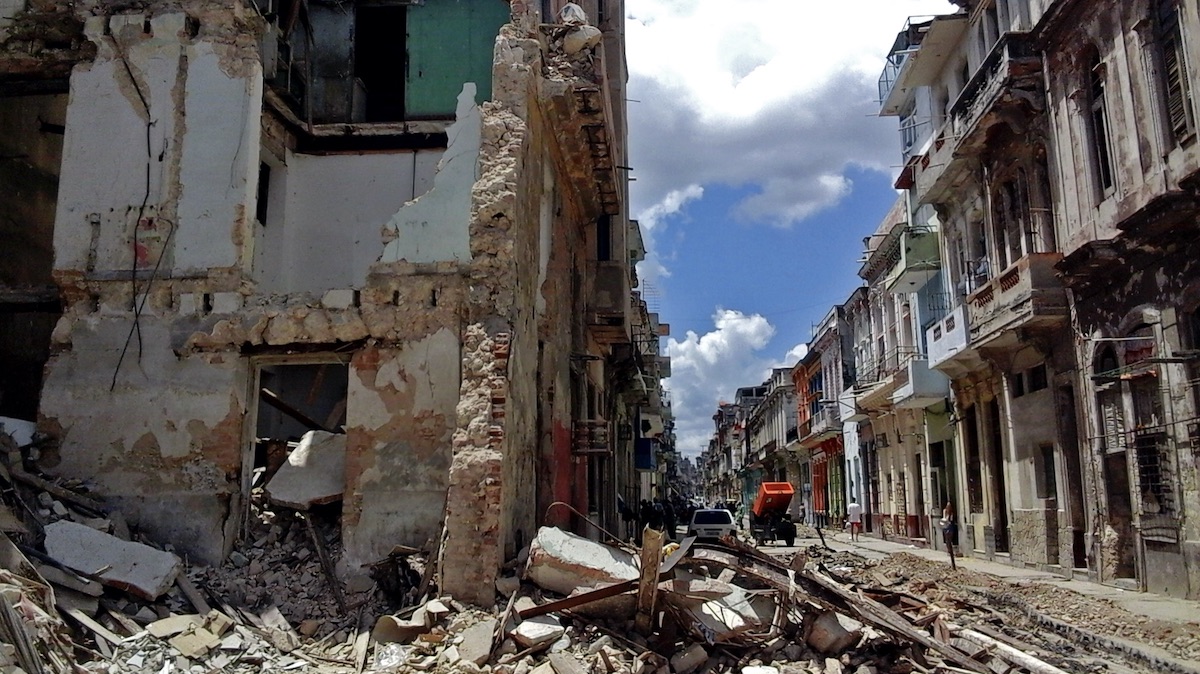Many sincere people believe, at this stage of the conflict, that the "blockade" against Cuba is an anachronism, a relic from the Cold War, and that it is up to the US Congress to rescind it, as the only entity capable of doing so. At least two reasons are almost always advanced: no country has the right to interfere in the development and happiness of another; and that it has been used as a justification by Havana to blame a third party for its ineptitude and the lack of freedom on the island. The chorus of critics of the embargo/blockade say that it is time to deprive the regime of this excuse.
Both opinions are logical… at first glance. In reality, it is the socialist system and its planned economy that have hampered, and will continue to hamper, the country's development, as was demonstrated over the last century everywhere it was implemented across the planet. As for the embargo/blockade as an excuse, others would surely be cited in its place: an international plot to prevent investment in the island, hurricanes, droughts, geomagnetic storms... Every form of totalitarianism posits an enemy that must be annihilated. In Latin American they have been given a series of epithets: gusanos (worms), escoria (scum), platistas (moneygrubbers), escúalidos (dissenters), pitiyankis (Yankee wannabes), etc.
It is true that the embargo hinders the regime's operations. It is not the same to bring goods from US ports, just one day away, than from Latin America or Europe; restrictions are imposed on products featuring a percentage of northern technology and intellectual property; and use of the dollar is limited, as United States banks are unable to carry out financial transactions with the island.
When the word "blockade" is used to designate what is really a full-fledged embargo – that is, a commercial and financial restriction – a kind of "subliminal noise" is generated. A form of semantic confusion. Put bluntly, it is an act of goading. Despite the fact that the United States and its community of Cuban exiles are responsible for providing Cuba with almost all its foreign funds from abroad, in the form of dollars, and almost all Cuba's chicken, a good amount of it rice, and other products; and that, until very recently, there were dozens of daily flights between the two countries, many people in the world continue to call a blockade what is really an embargo, and they may continue to do so. Why?
To understand this (without going into the technical details of linguistics and semiotics, and even less into Lacanian psychoanalysis), the word "blockade " produces in the listener, the receiver, a very negative reaction, one of shock and repulsion. The images it conjures up are significant, leading one to imagine isolation, nothing coming in or out, a country starved to death. It is a strong word, suggesting an act of war that precedes the invasion or conquest of a territory. For ages fortresses and castles were subjected to blockades to force those holding out behind their walls to surrender, due to and hunger, and this is, precisely, one of the scenarios the regime most consistently seeks to suggest.
The word "embargo" is not only "softer," but also refers to a legal circumstance in which a party does not pay, so a creditor collects by imposing restrictions on his finances or assets. The salary of one who do not honor his commitments to his family can be embargoed; a company guilty of contamination is embargoed; banks embargo the houses and cars of those who do not pay on time. "Embargo," however, does not support the user′s aim in this case: to morally impugn his enemy.
We must admit that the regime has ably articulated a narrative of victimization, spreading an account according to which a small, underdeveloped island has been blockaded by the largest empire humanity has ever known. From the start Fidel Castro detected the anti-Americanism in the region and moved to replace the term "embargo" with "blockade." It worked. And it continues to work because of a historical truth seared into the international consciousness: the Americans have been invaders, and blockaders, of other lands. Few have time to ponder the causes that gave rise to the conflict. It is easier to blame than to forgive, to hate than to love.
The propaganda that the regime sells today is that it is the United States that needs to lift the blockade because it is losing opportunities 90 miles from its shores; that most Cuban exiles want to see the end of the Helms-Burton Act; and that Cuban beaches and hotels are the best in the world, so tourists from the north have a right to visit them, which they must demand from their government.
Something very curious is happening, however, from a sociological and even linguistic point of view: a refutation of the Goebbelian theory that a lie repeated a thousand times comes to be taken as truth. In this, social media and the economic, health and ideological crisis facing the regime have played an essential role.
The Nazi propaganda minister's maxim works when the media that people consume is controlled, they have no access to any other information, and consumers are held captive in a comfort zone. Cuba today has the merit of disproving that anthological fascist formula: the more the regime mentions the word "blockade" as the cause of all the country's ills, and the more people suffer shortages and scarcity, the more certain the Cubans are that they have been lied to, are being lied to, and will be lied to.
